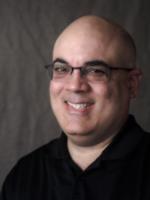
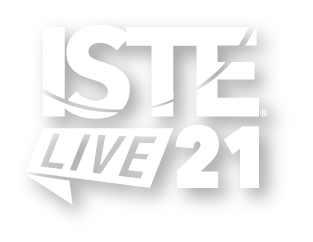
No Way But Forward: Inclusive Learning in a Pandemic |
Explore and create : Playground
Sean Arnold Kimberly Coy Helen DeWaard Dr. Susie Gronseth Rhianon Gutierrez Mindy Johnson Dr. Luis Perez
The Inclusive Learning Network Playground will be a world cafe of stations where educators and edtech leaders in PK-12 and higher education will share lessons learned and various low- and high-tech approaches for designing for inclusion and equity during a pandemic.
| Audience: | Curriculum/district specialists, Professional developers, Teachers |
| Skill level: | Beginner |
| Attendee devices: | Devices required |
| Attendee device specification: | Smartphone: Android, iOS, Windows Laptop: PC, Chromebook, Mac Tablet: Android, iOS, Windows |
| Topic: | Universal Design for Learning/differentiated learning |
| Grade level: | PK-12 |
| Subject area: | Special education, Not applicable |
| ISTE Standards: | For Education Leaders: Visionary Planner
Leader
|
| Additional detail: | ISTE author presentation |
| Influencer Disclosure: | This session includes a presenter that indicated a “material connection” to a brand that includes a personal, family or employment relationship, or a financial relationship. See individual speaker menu for disclosure information. |
1. Participants will be able to describe the key principles of Universal Design for Learning: multiple means of engagement, action and expression, and representation. Participants will see examples of these principles in digital educational environments.
2. Participants will be able to identify scalable ways in which they can apply the principles of UDL to teaching in an online or blended learning environment across PK-12, higher education, or the workforce. Models include using synchronous and asynchronous learning times to promote rigor, co-teaching to support differentiation, working with families and guardians, and others.
3. Participants will be able to see in action, and evaluate specific practices, by teachers and students by looking at lessons, assignments, and engagement ideas while using online lesson plans to begin to develop their own work.
The stations will be divided by grade levels, with educators and education leaders sharing stories, practices, and tools that have worked for them in remote learning since March 2020. These stories will focus on how Universal Design for Learning formed the foundation for how they created their flexible design and helped them iterate based on their changing contexts. Some examples include:
K0-2nd grade - engaging with families and paras in more meaningful ways; having language options and multiple means of representation; low tech offline activities balanced with online learning
3rd-5th grade - co-teaching with special and general education learners in “the same” classroom
6th-8th grade - making connections with peers; how working with peers in online environments supports student engagement
9th-12th grade - directed learning: how the brain uses emotions in adolescents to support curiosity and risk taking in learning scenarios
Higher Education - anything but those boring discussion boards; how to interact with student interest with both high tech and low tech strategies
Workforce - live captioning and breakout rooms in Zoom; creating teams to support online professional learning
Burdette, P. J., & Greer, D. L. (2014). Online Learning and Students with Disabilities: Parent Perspectives. Journal of Interactive Online Learning, 13(2).
Cavanaugh, C. S., Barbour, M. K., & Clark, T. (2009). Research and practice in K-12 online learning: A review of open access literature. International Review of Research in Open and Distance Learning, 10(1), 1-22.
Coy, K., Marino, M. T., & Serianni, B. (2014). Using universal design for learning in synchronous online instruction. Journal of Special Education Technology, 29(1), 63-74.
Gemin, B., Pape, L., Vanshaw, L., & Watson, J. (2015). Keeping pace with K-12 online & blended learning: An annual review of policy and practice. Evergreen, CO: Evergreen Education Group.
Meyer, A. & Rose, D.H. (2005). The future is in the margins: The role of technology and disability in educational reform. In D.H. Rose, A. Meyer & Hitchcock (Eds.), The universally designed classroom: Accessible curriculum and digital technologies (pp. 13-35). Cambridge, MA: Harvard Education Press.
Smith, S. J., & Basham, J. D. (2014). Designing online learning opportunities for students with disabilities. Teaching Exceptional Children, 46(5), 127-137.
Thompson, L. A., Ferdig, R., & Black, E. (2012). Online schools and children with special health and educational needs: Comparison with performance in traditional schools. Journal of Medical Internet Research, 14(3), 1-9. doi:10.2196/jmir.1947
Vasquez, E., & Serianni, B. A. (2012). Research and practice in distance education for K-12 students with disabilities. Rural Special Education Quarterly, 31(4), 33-43.
Vasquez III, E., & Straub, C. (2012). Online instruction for K-12 special education: A review of the empirical literature. Journal of Special Education Technology, 27(3), 31-40.
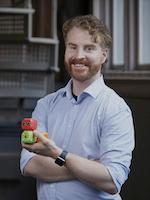
Sean Arnold has won multiple awards for his work with diverse students with disabilities in New York City’s District 75 certified in a wide variety of educational technology. He has helped develop successful programs at a class and district level to address the major challenges facing instruction in a diverse but highly segregated city including the award-winning NYC Schools Tech program.
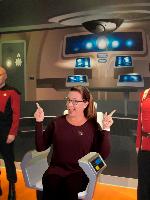

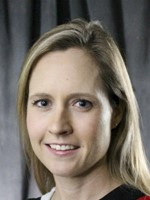
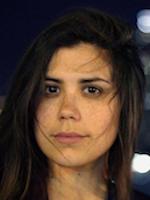
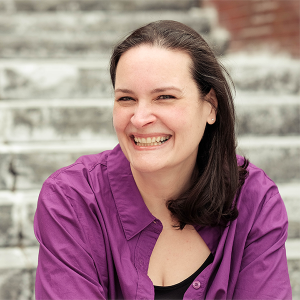
Mindy Johnson is the Director of Digital Communication & Outreach at CAST. She is a former high school special education teacher and instructor for the Boston Museum of Science Overnight Program, providing insight into UDL implementation in informal learning environments. She is also one of the co-founders of #UDLchat on Twitter and coordinates the digital outreach activities (web and social media) for CAST. Mindy is the 2019-2020 President of ISTE’s Inclusive Learning Network and was part of the Technical Working Group for the development of the 2018 refresh of the ISTE Standards for Educators.
